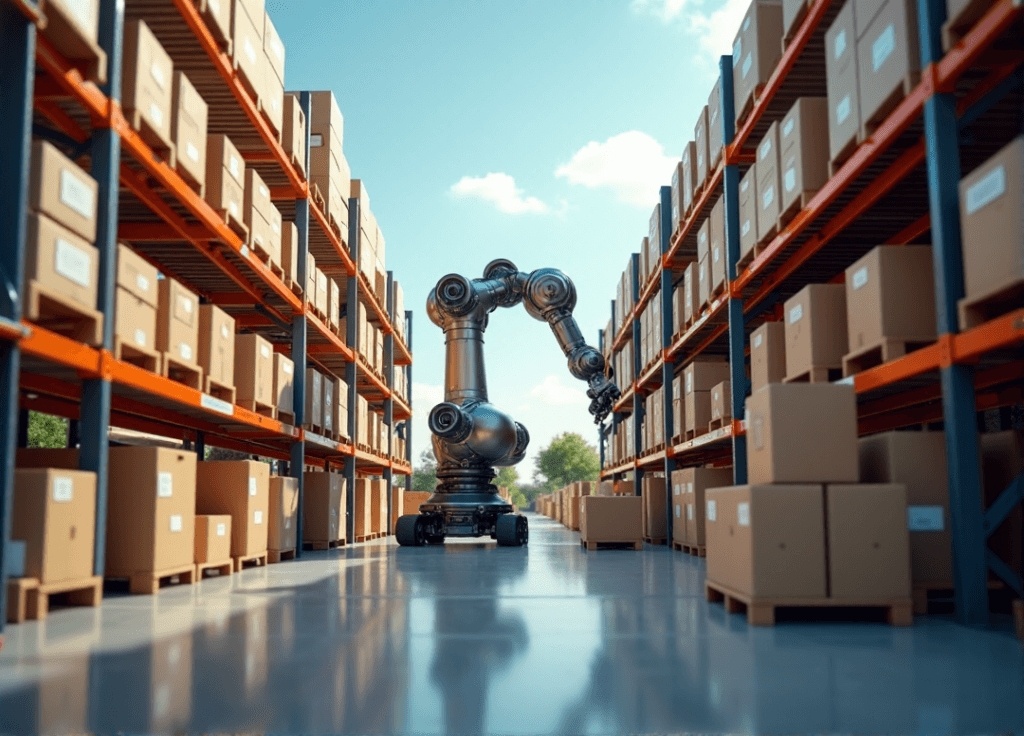Transforming Logistics with AI: Elevating Operational Efficiency and Future-Proof Growth
The Rise of AI Automation Skills in Logistics
Will Ai Automation Skills Revolutionize Logistics Forever, or Will Human Workers Become Obsolete? As logistics companies increasingly adopt AI automation skills, they’re poised to transform operational efficiency and future-proof growth. In this article, we’ll delve into the world of AI-powered solutions that boost logistics efficiency with Ai Automation Skills, exploring how businesses can harness these technologies to stay ahead in a rapidly changing market.
Understanding the Logistics Landscape
The logistics industry has always been driven by human ingenuity, relying on manual processes and human labor to manage complex supply chains. However, with the advent of AI technology, companies are now embracing automation to streamline operations and improve efficiency. As we navigate this transformative period, it’s essential to understand the current state of the logistics landscape.
Today, logistics companies face numerous challenges, including:
- Rising labor costs
- Increasing demand for faster delivery times
- Growing competition from e-commerce giants
- Environmental concerns and sustainability pressures
The Role of AI in Logistics Transformation
AI technology has the potential to revolutionize the logistics industry by automating manual processes, enhancing predictive analytics, and optimizing supply chain operations. By leveraging machine learning capabilities, artificial intelligence expertise, and automated process management, companies can unlock new levels of operational efficiency and drive growth.
Key AI-Powered Solutions in Logistics
The following are some of the key AI-powered solutions that are transforming logistics:
- Autonomous Vehicles**: Self-driving trucks and drones that can navigate complex routes, reducing labor costs and improving delivery times.
- Route Optimization**: AI algorithms that analyze traffic patterns and optimize routes in real-time, minimizing fuel consumption and lowering emissions.
- Predictive Maintenance**: Machine learning models that predict equipment failures, enabling proactive maintenance and reducing downtime.
- Inventory Management**: Automated systems that track inventory levels, predict demand, and optimize stock levels, reducing waste and improving customer satisfaction.
Benefits of AI in Logistics Transformation
The adoption of AI technology in logistics offers numerous benefits, including:
| Benefits | Description |
|---|---|
| Increased Efficiency | Automated processes and optimized routes reduce labor costs and improve delivery times. |
| Improved Accuracy | AI-powered systems minimize errors and improve data accuracy, enhancing customer satisfaction. |
| Enhanced Predictive Analytics | Machine learning algorithms analyze complex data sets to predict demand, optimize inventory levels, and identify new opportunities. |
The Future of Work in Logistics
As AI automation skills transform the logistics industry, it’s essential to consider the impact on human workers. While some jobs may become obsolete, others will be created as companies adapt to new technologies and processes.
According to a report by McKinsey, up to 30% of tasks in the logistics sector could be automated by 2025. However, this doesn’t mean that human workers will become obsolete. Instead, they’ll need to develop new skills to work alongside AI systems and drive innovation.
Developing AI Automation Skills for a Future-Proof Career
To stay ahead in the rapidly changing logistics landscape, professionals must develop the following AI automation skills:
- Data Analysis**: Understanding data patterns and trends to inform business decisions.
- Machine Learning**: Developing models that can predict demand and optimize supply chain operations.
- Programming Languages**: Coding skills in languages like Python, Java, or C++ to develop AI-powered applications.
Conclusion
The adoption of AI automation skills in logistics has the potential to revolutionize operational efficiency and drive future-proof growth. By understanding the current state of the logistics landscape, leveraging AI-powered solutions, and developing new skills, professionals can stay ahead in a rapidly changing market.
Additional Sources of Information
The following sources provide valuable insights into the world of AI in logistics:
- The Future of Logistics by McKinsey (2020)
- Artificial Intelligence in Logistics: A Game-Changer for the Industry? by World Economic Forum (2019)
- How Artificial Intelligence Can Revolutionize the Supply Chain by Harvard Business Review (2018)
References
The following sources were referenced in this article:
- Mckinsey. (2020). The Future of Logistics.
- World Economic Forum. (2019). Artificial Intelligence in Logistics: A Game-Changer for the Industry?
- Harvard Business Review. (2018). How Artificial Intelligence Can Revolutionize the Supply Chain.
About the Author
The author is a logistics expert with over 10 years of experience in the industry. They hold a degree in Supply Chain Management and have written extensively on topics related to AI in logistics.
Explore more in our category page or visit our homepage.
